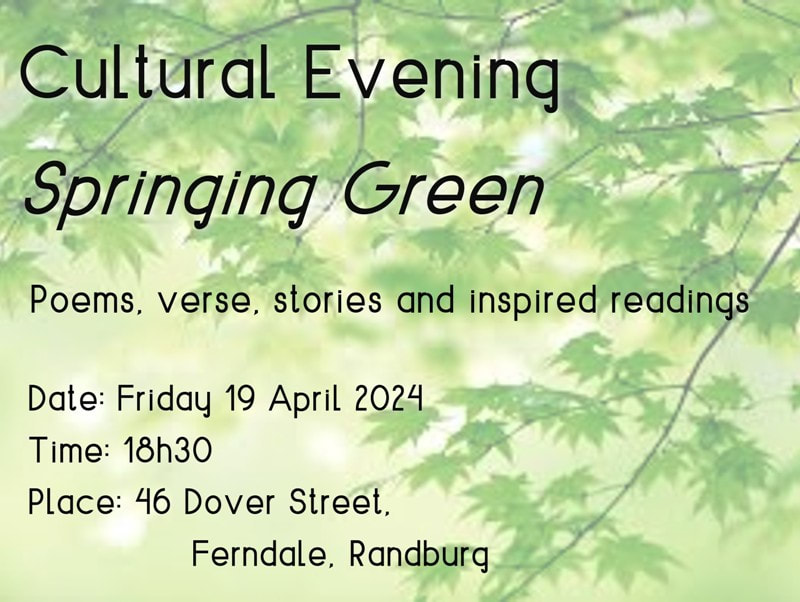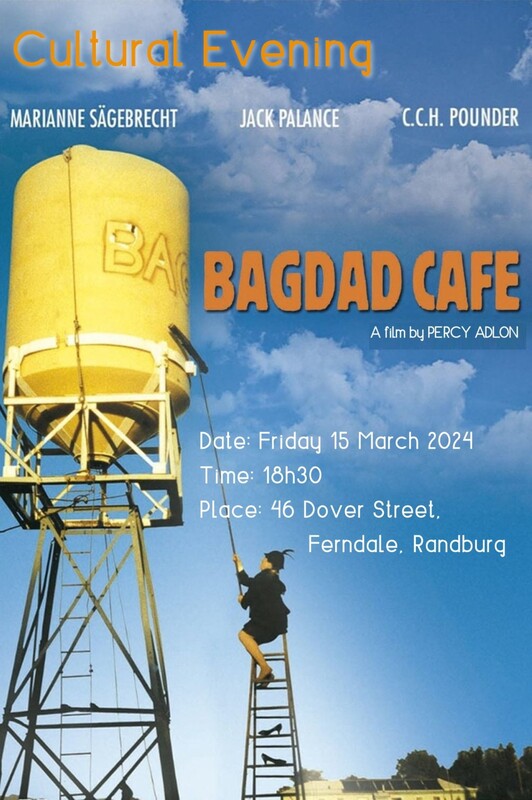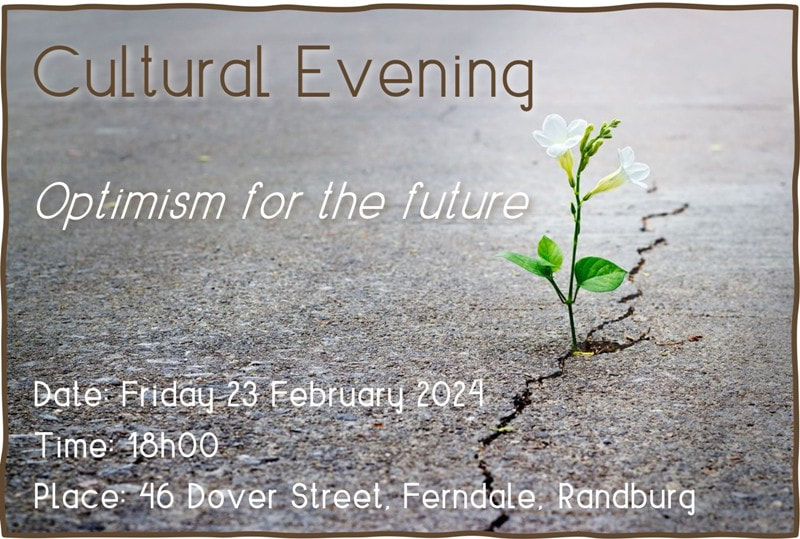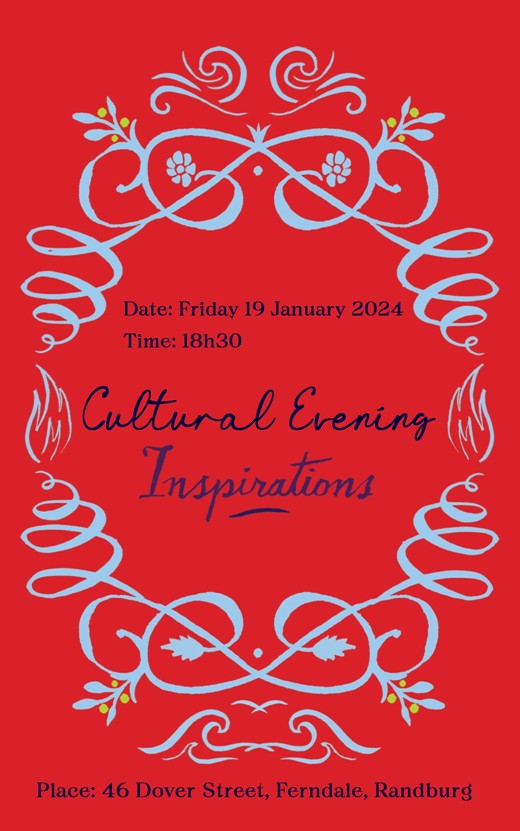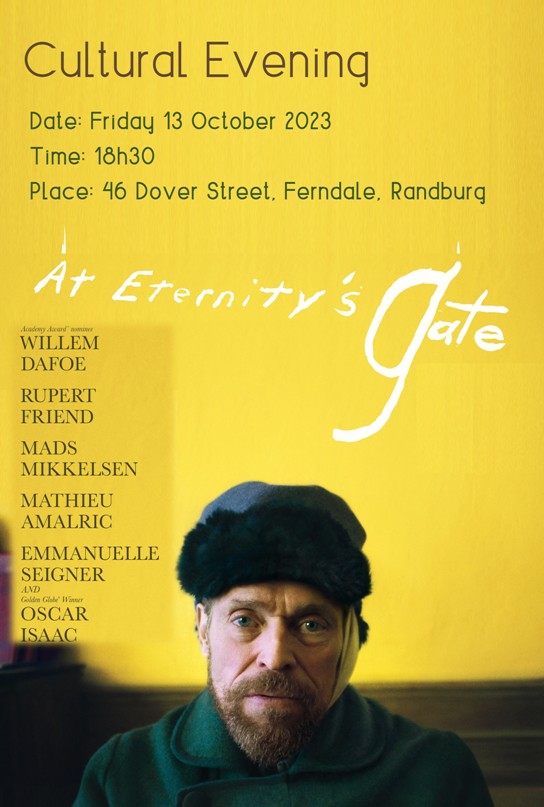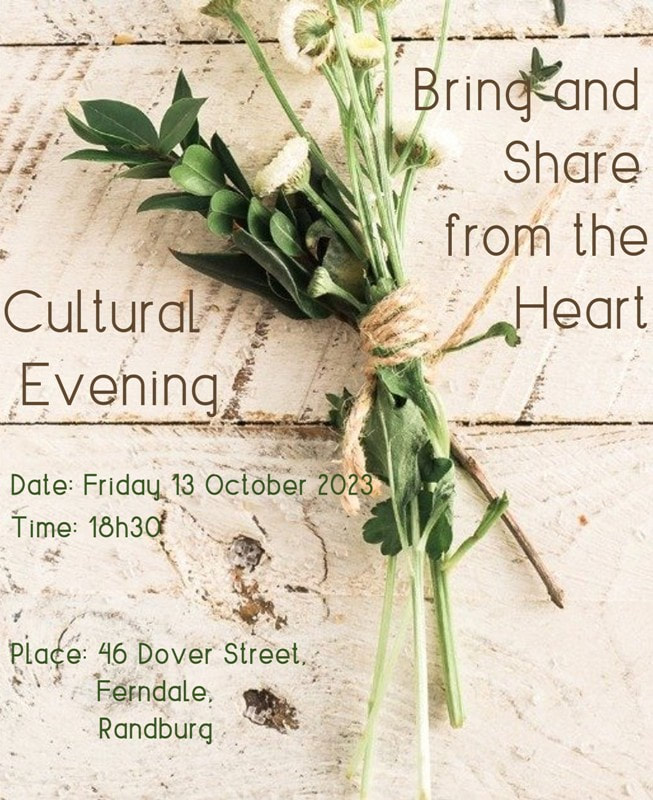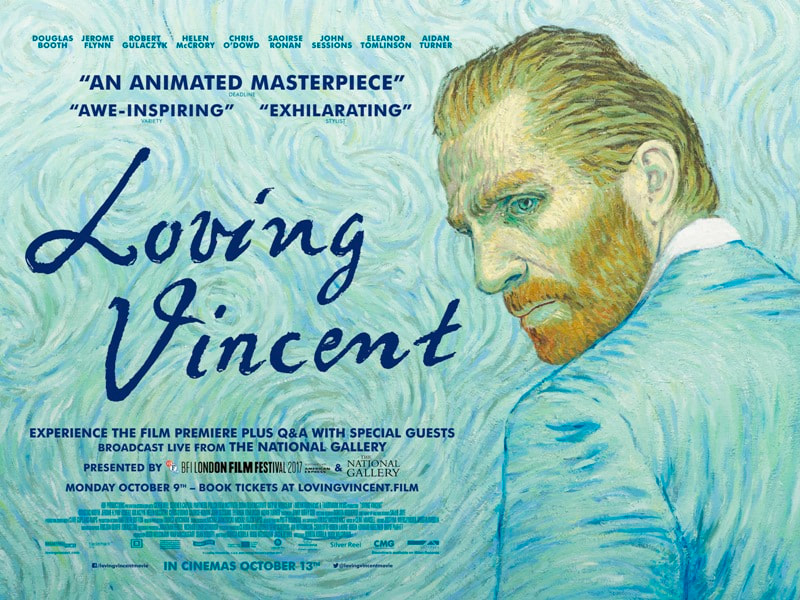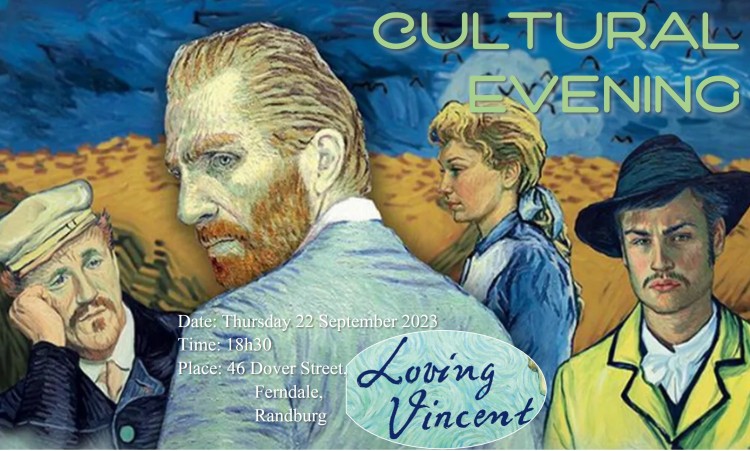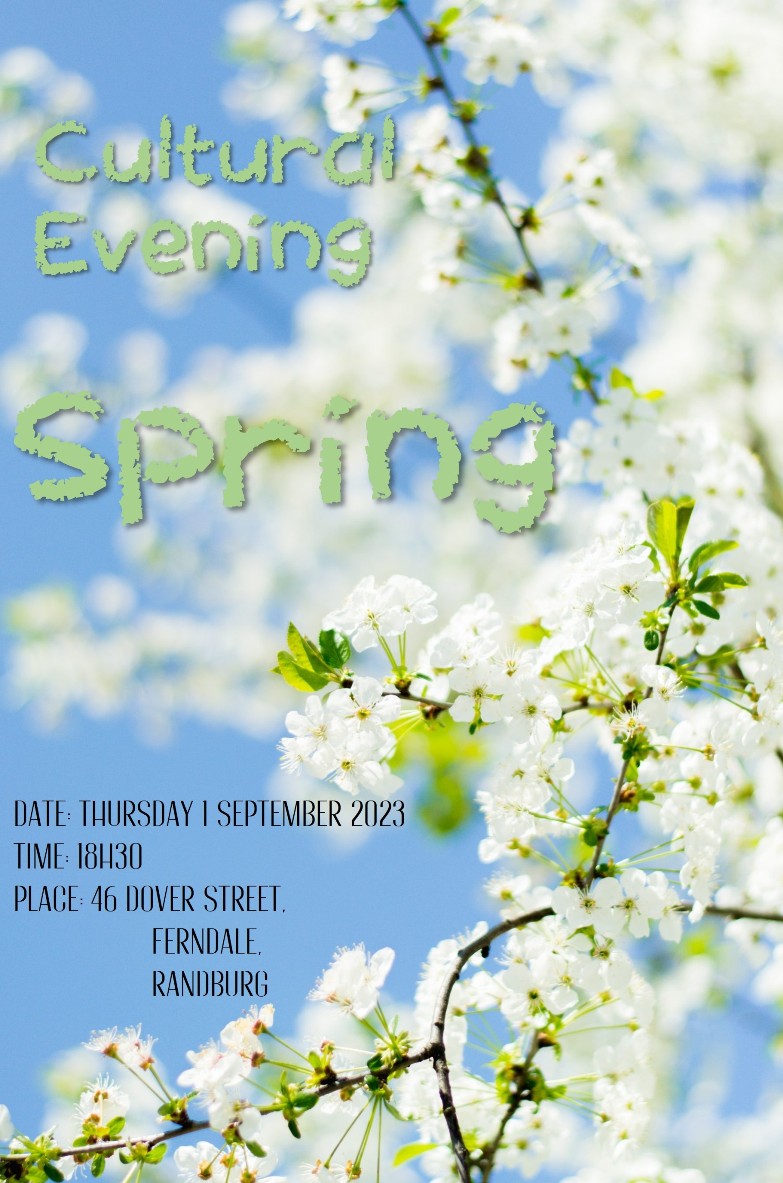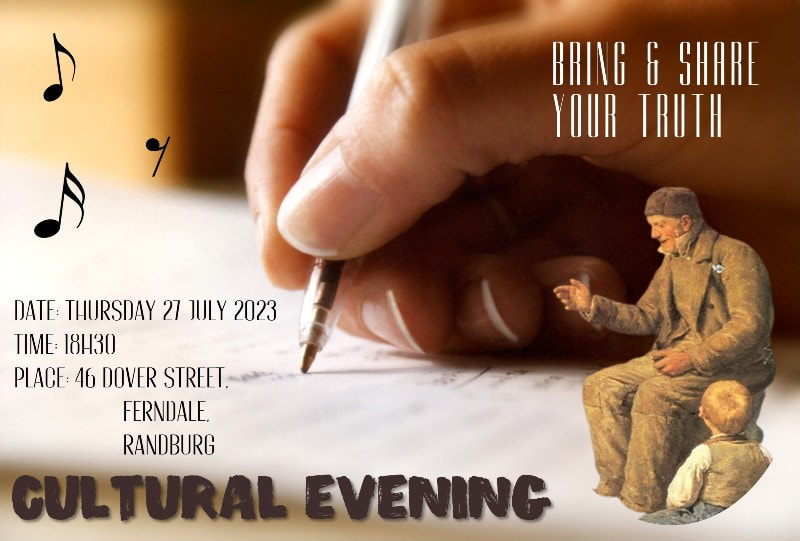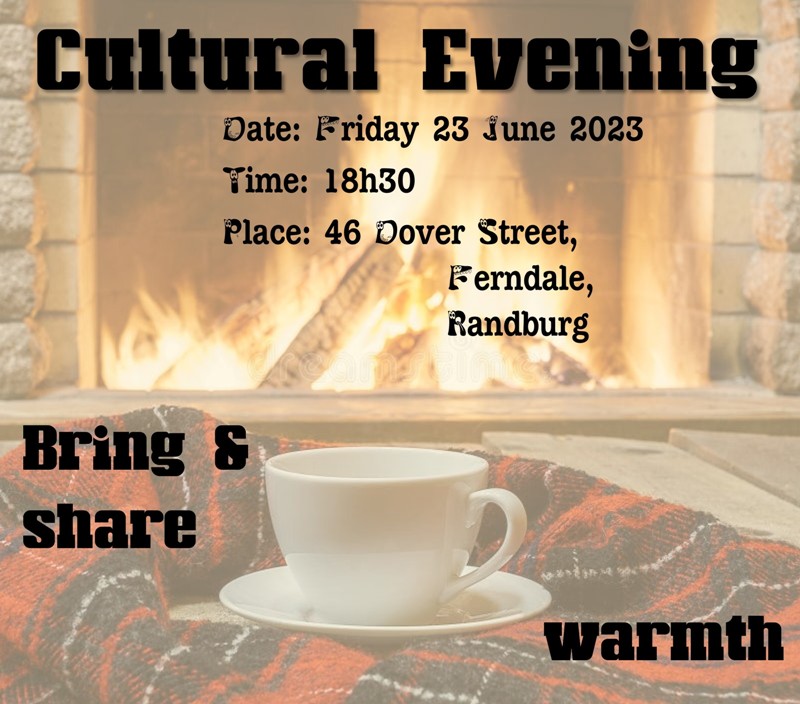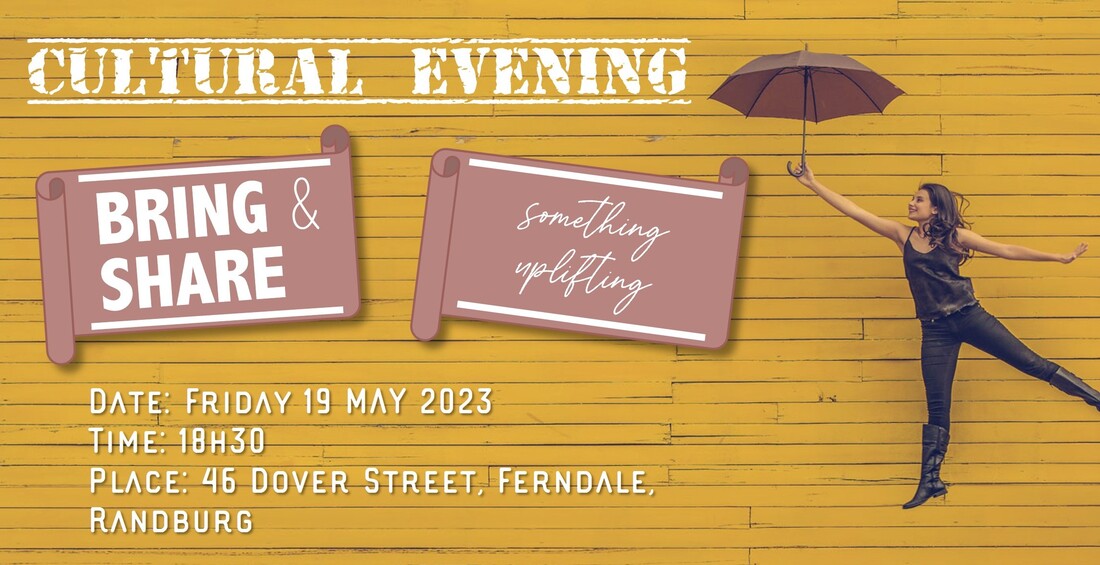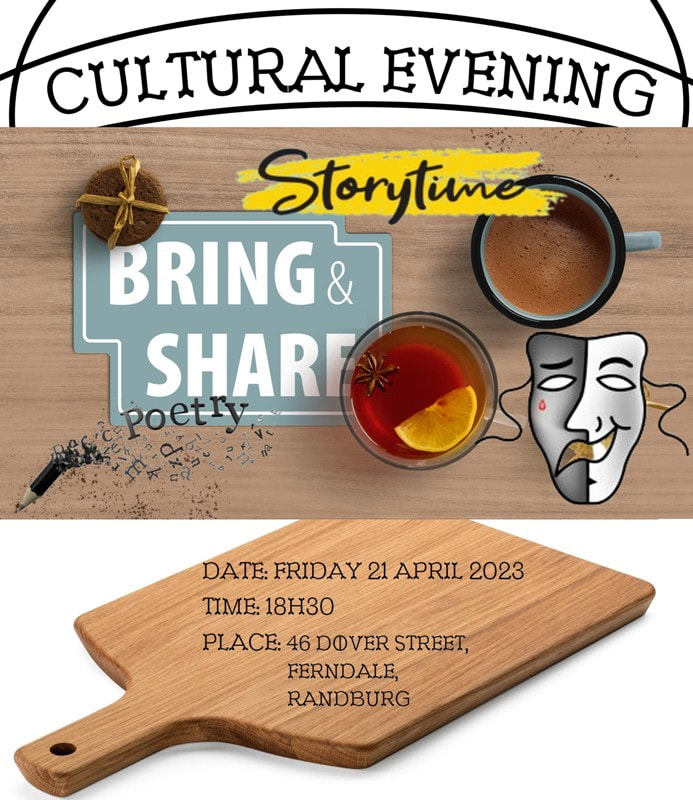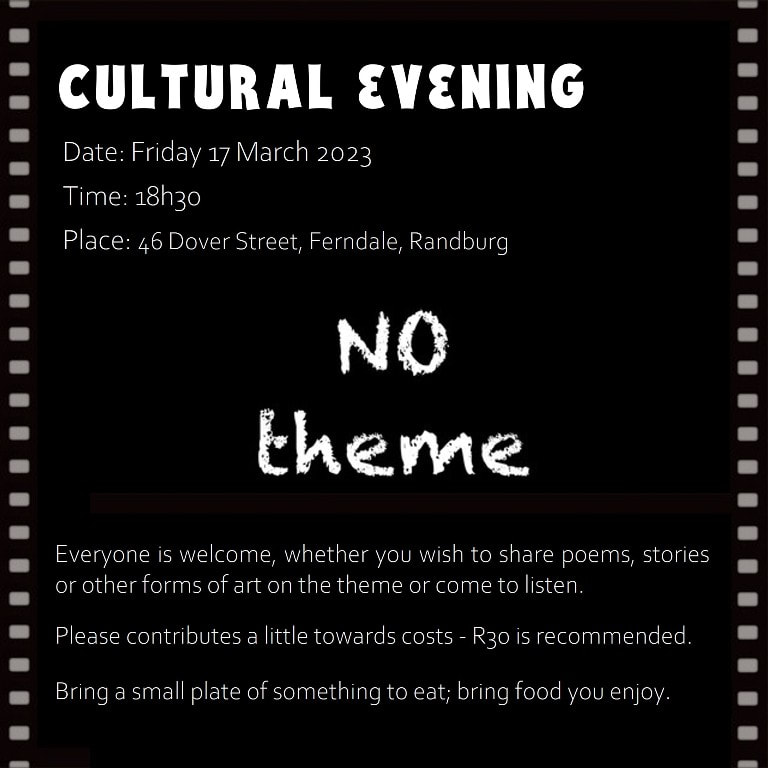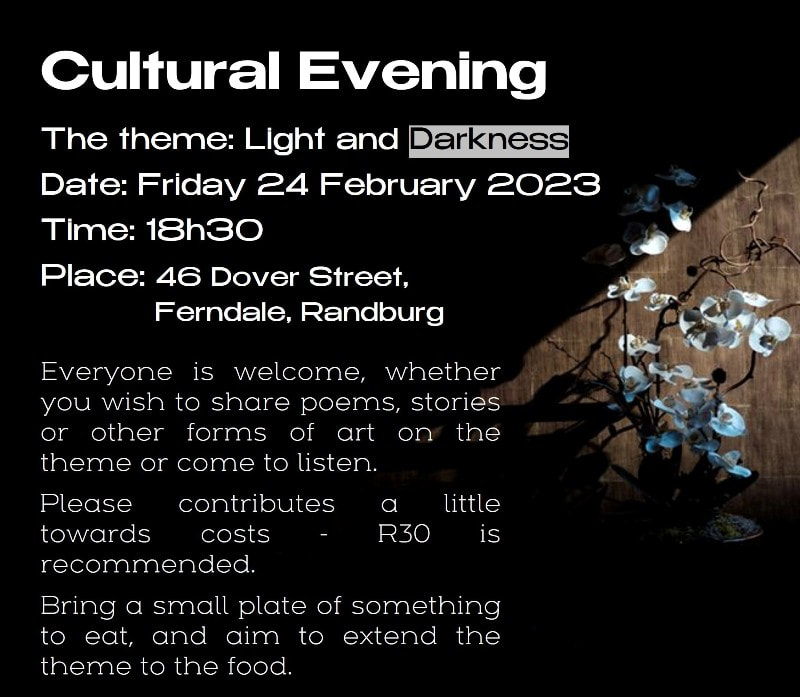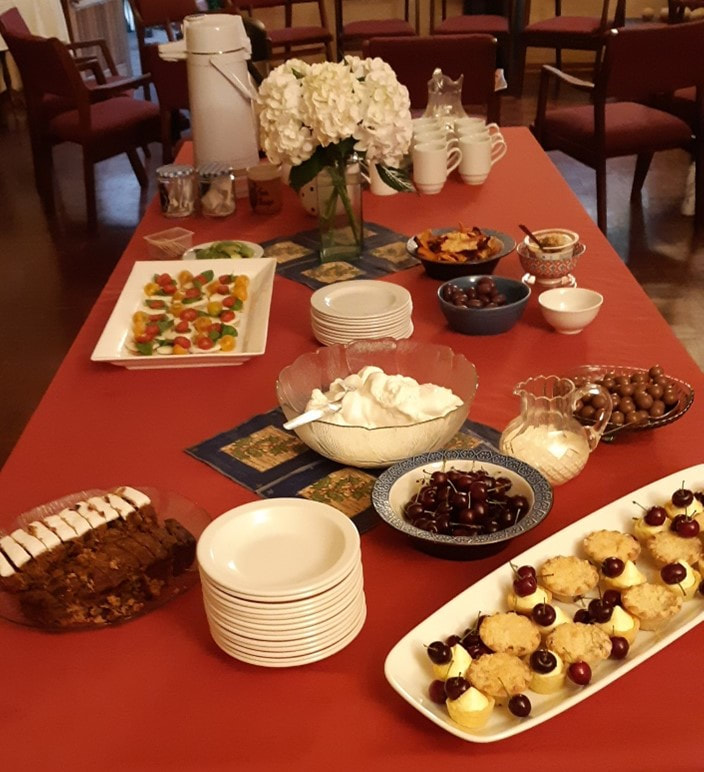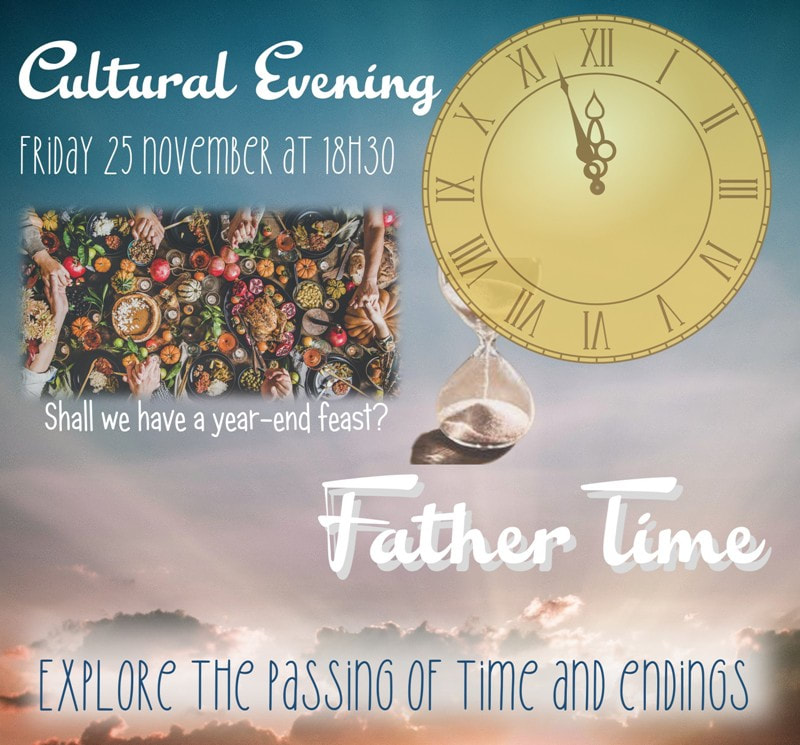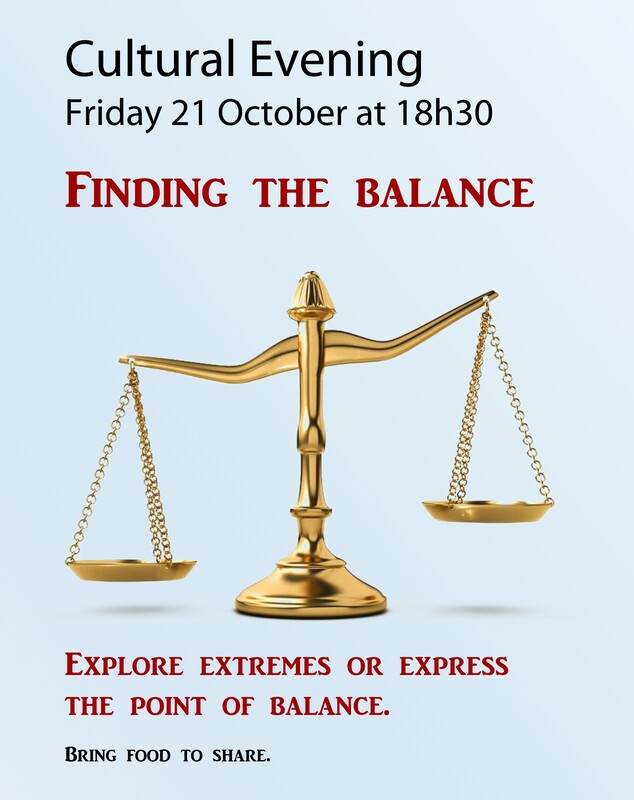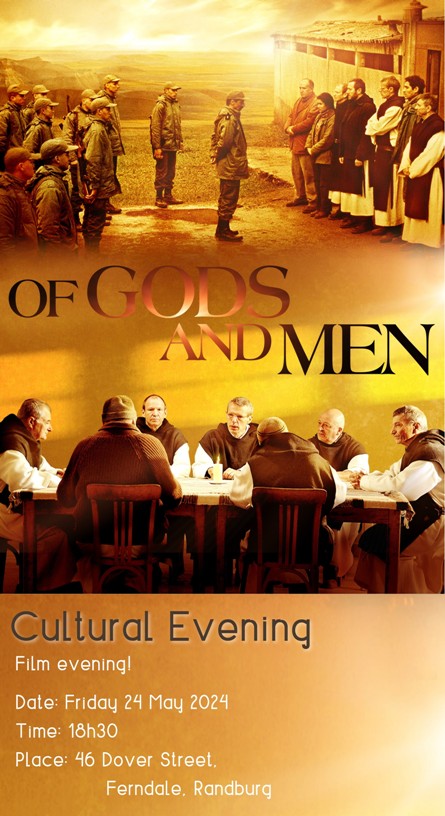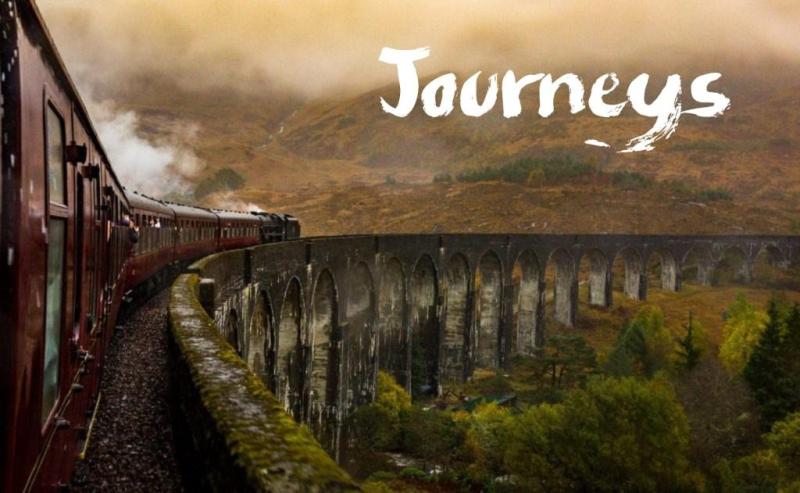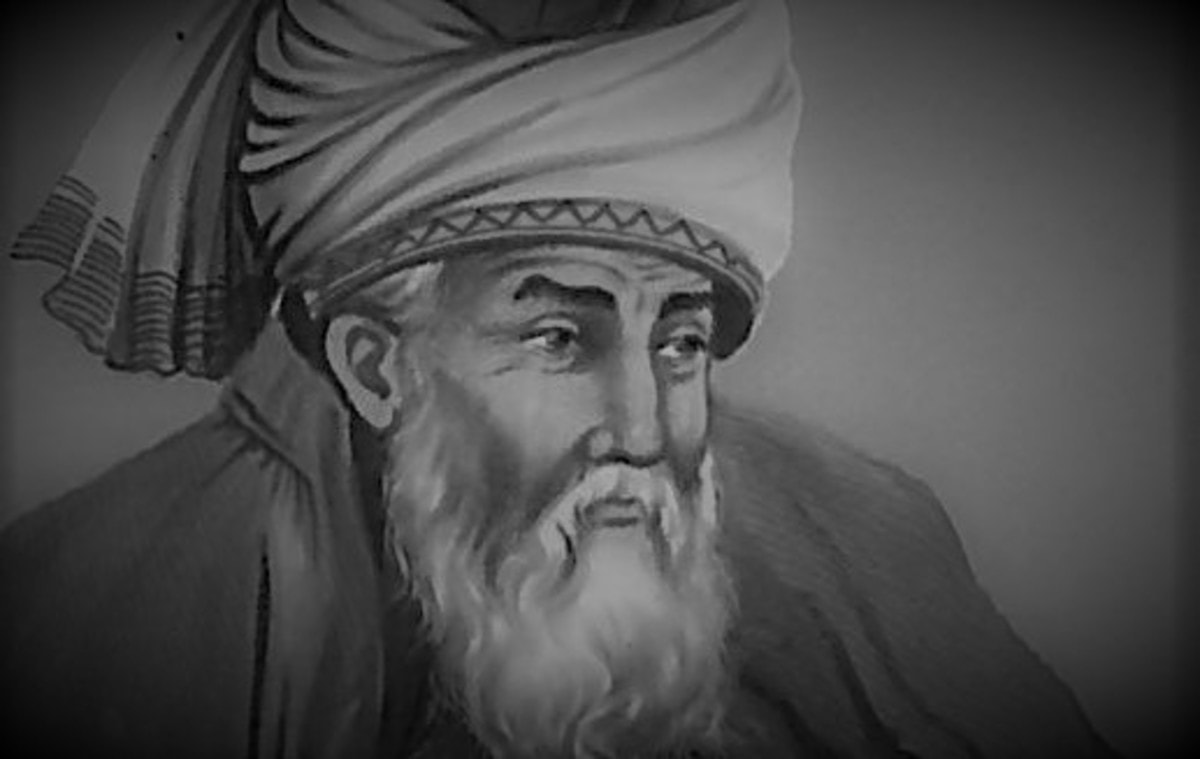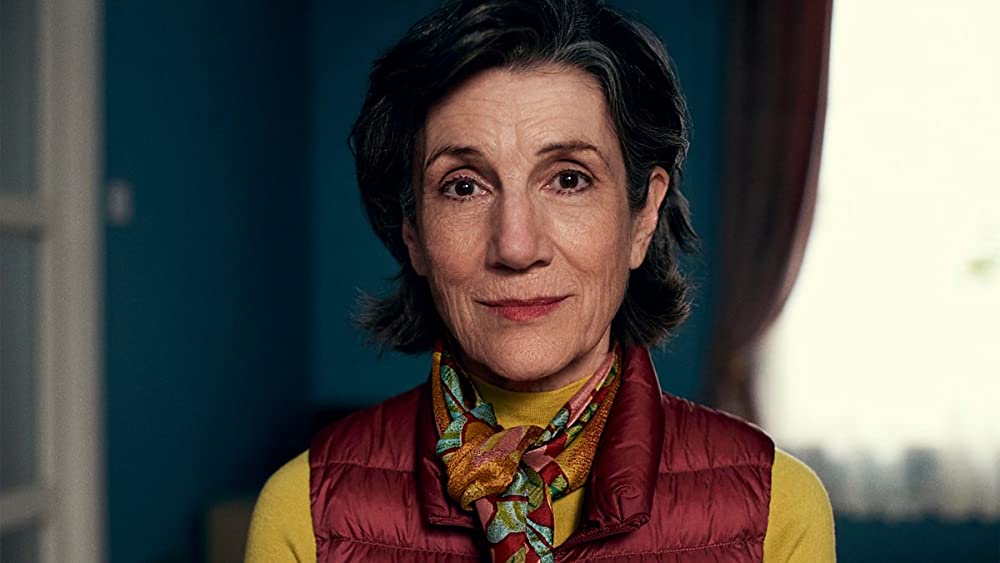Cultural Evenings
Cultural Evening, Friday 19 July at 18h30 on the theme of NamesA Cultural Evening takes place on Friday 19 July at 18h30. We are in the season of St John, more correctly I-O-A-ness, a name that is not a name, but rather a title. What is there in a name that we can share through poems, stories, visuals and even music related to bringing meaning to the theme Names?
Bring a plate of food or snacks to share. A small contribution towards the costs of the evening is hoped for – we suggest R30. |
Cultural Evening, Friday 21 June on the theme of the Winter SolsticeThe Cultural Evening that took place on Friday 21 June occurred on Mid-winter's night. The theme for the evening was Winter Solstice.
Mid-winter was interpreted also as the winter of the soul. We heard two marvellous stories that moved the soul. We listened to a few poems, some read by their creator. By the end of the evening we felt well nourished in body and soul after a delightful table of hot soup and bread, cheese and biscuits. sweet biscuits and fruit. |
Cultural Evening - Of Gods and Men, Friday 24 MayWe watched an extraordinary film on Friday 24 May as our cultural evening in May. The story that this film depicts is a historical story. A group of Cistercian monks working in a monastery in Algeria in the 1990’s during the outbreak of civil war is asked by the Algerian government to leave the country and return to France. They must consider the work they are doing for the village that had sprung up around the monastery. As one villager says: “You are the branch and we are the birds”. They must consider their mission in coming to Africa.
This film weaves their ordinary daily routines and lives with the life-altering decision process they go through. Eventually they all vote to remain. Some three years later seven of the nine monks are taken hostage by a terrorist group that hopes to leverage their captivity for gain. Some time later they are found dead, executed. The uncertainty of their execution is alluded to in scenes in the film. Watching this film provides an opportunity to think of one’s own ‘mission’ in coming to the earth and how outside forces may divert one from this mission. How can one remain true to this purpose in life? The film centres on a true story that happened in the monastery of Tibhirine, where nine Cistercian monks lived in harmony with the largely Muslim population of Algeria, until seven of them were kidnapped and assassinated in 1996 during the Algerian Civil War. Largely a tale of a peaceful situation between local Christians and Muslims before becoming a lethal one due to external forces, the screenplay focuses on the preceding chain of events in decay of government, expansion of terrorism, and the monks' confrontation with both the terrorists and the government authorities that led up to their deaths. (Wikipedia) “It focuses entirely on the nobility of the monks in choosing to stay with their vocation and their duty in the face of quite probable death. Did they make the right choice? In their own idealistic terms, yes. In realistic terms” …? Taken from a review by Roger Ebert (March 2011). The answer to this question is one each viewer must decide for themselves. |
Cultural Evening - Springing Green on Friday 19 AprilCultural Evening took place on Friday 19 April. The theme for the evening is Springing Green: bring poems and verse (ones you have written or ones you love); bring stories and inspired readings.
The theme is inspired by the spiritual mood of Eastertime. As we experience autumn (with the falling of leaves) we can feel the spiritual upliftment of springing green. |
The Cultural Evening on Friday 15 March 2024The screening of the movie Bagdad Cafe on Friday 15 March took the place of a Cultural Evening in March. March was a busy month with a Priest Synod, Lenker visit and Holy Week and seemed impossible to still slot in a Cultural Evening. At the January Cultural Evening one of the participants played the theme song from the movie Bagdad Cafe as something uplifting that fitted the theme of the evening. This prompted the idea of screening the movie to a private audience. However, it seemed appropriate to show it to the community.
About 20 people arrived to watch the movie. Everyone, from those who had watched it multiple times when it first came onto the circuit to those seeing it for the first time, thoroughly enjoyed the experience. From Wikipedia: the Plot German tourists Jasmin Münchgstettner (Sägebrecht) from Rosenheim and her husband fight while driving across the American southwest desert. She storms out of the car and makes her way to an isolated truck stop cafe, which is run by the tough-as-nails and short-tempered Brenda (Pounder), whose own husband, after an argument out front, is soon to leave as well. Jasmin takes a room at the adjacent motel. Initially suspicious of the foreigner, Brenda eventually befriends Jasmin and allows her to work at the cafe. The cafe is visited by an assortment of colorful characters, including a strange ex-Hollywood set-painter (Palance) and a glamorous tattoo artist (Kaufmann). Brenda's son (Darron Flagg) plays J. S. Bach preludes on the piano. With an ability to quietly empathize with everyone she meets at the cafe, helped by a passion for cleaning and performing magic tricks, Jasmin gradually transforms the cafe and all the people in it. |
The script was inspired by a road trip across U.S. Route 66 taken by director Percy Adlon and his wife Eleanor, a producer, in 1984. The town of Barstow, California reminded the couple of "purgatory." The German title is a joke based on Jasmin's lack of English: while she means to say that she is from Rosenheim, she actually says that she is "out of Rosenheim," with the title also making reference to Sidney Pollack's then recently released popular 1985 film Out of Africa. The film was shot in sequence.
The Cultural Evening on Friday 23 February 2024 at 18h30The Cultural Evening on our Optimism for the future brought guests and visitors. Many of the cultural contributions were of a musical nature or audio editions by the author. A few poems were scattered in between ranging from the "Warning" by Jenny Joseph, and other poems by Emily Dickinson, Maya Angelou, and Walt Whitman to Hermann Hesse. The snacks were varied with a selection of cheeses, biscuits, bread, jam and olives with tea and coffee.
|
The Cultural Evening on Friday 19 January 2024A very small group gathered for a totally delightful Cultural Evening that had the theme: Inspirations. The snacks varied from fruit to biscuits with cheese and olives and Panettone washed down with tea and coffee.
There were nine cultural offerings with poems by Robert Frost, WH Auden, William Blake among others, Khalil Gibran, The Tao of Pooh and a haunting song to end the evening. Those in attendance left with a sense of having been uplifted by the beauty and insightfulness of the offerings. |
The Cultural Evening on Friday 1 December 2023 at 18h30
|
The Cultural Evening takes place on Friday 1 December.
Following on from the popularity of Loving Vincent, we showed the movie, At Eternity's Gate. At Eternity’s Gate is a fascinating fusion of a trio of artists: subject Vincent Van Gogh, performer Willem Dafoe, and filmmaker Julian Schnabel. The film does not seek to hit the high points of a famous life, the director delivers a film more interested in philosophy and the process. Schnabel’s camera is often moving and often in close-up, as if the filmmaker is trying to find the magic in Dafoe’s performance in the same way that Van Gogh tried to find the magic in a landscape he was painting. |
The monthly Cultural Evening on Friday 13 October
The monthly Cultural Evening on Friday 22 September was a movie evening
|
There was a good turnout to watch Loving Vincent, the world's first fully painted animated full-length feature film on the life and death of Vincent van Gogh. It is a 2017 Polish/UK co-production.
The film is made with over a 1000 painted canvases that required 65 000 frames of film with each canvas created in oil paints in the style of Vincent van Gogh's art. Thus it is a moving van Gogh-like painting that tells the story of the last part of his life and posits a theory as to how he died. It is an unusual and quite remarkable achievement and startlingly different from anything that has been filmed before. A wonderful assortment of snacks made for wonderful light meal to accompany the film. After the film there was a general request for more films of this nature. Do yourself the favour of clicking on the buttons below. |
The monthly Cultural Evening on Friday 1 SeptemberThe Cultural Evening on Friday 1 September had the theme of Spring. This was celebrated with spring rolls, cherry yogurt and late winter fruit.
We listened to the sonnet that is set to music by Vivaldi in his Spring Concerto and then we listened to the concerto. The poems almost all related to Spring and the evening closed with a delightful piano piece. |
The monthly Cultural Evening on Friday 27 June
The Cultural Evening on the theme of bringing and sharing warmth
The Cultural Evening on the theme of bringing and sharing something uplifting
|
A lack of numbers did not diminish the enthusiasm for our Cultural Evening that took place on Friday, 19 May. In light of Ascension the theme was something uplifting. These evenings hold a special quality of intimate community in sharing something that touches the spirit in an enlivening way. It is an hour and a half that brings hearts-warmth to ending of a week that is open to everyone to come and enjoy.
|
The monthly Cultural Evening on Friday 21 April at 18h30
|
The Cultural Evening on Friday, 21 April was a quiet evening. The priest synod that ended at midday provided a substantial supper of various leftovers.
The poems that were brought and shared complemented the food in their variety. The evening came to meaningful end in the allotted time with everyone feeling well satisfied. These Cultural Evenings are worth coming to except that once you have attended one you may become hooked to attend them regularly. |
The monthly Cultural Evening on Friday 17 March at 18h30
|
The Cultural Evening on Friday, 17 March was a candlelight affair. Many of those who attended brought stories and poems that spoke strongly to them.
These evenings are a social time of sharing, such as the story of the miracle that occurred to one of the participants in Morocco. We get to know each other in community on a different level. It is highly recommended to come and experience one of these evenings and you may find yourself being converted into a regular attendee. |
The monthly Cultural Evening on Friday 24 February
|
The Cultural Evening on Friday, 24 February on the theme of Light and Darkness was unusual in taking place on the last Friday of the month. This was so as to accommodate The Africa Seminary weekend module with Jonah Evans on the previous week. The theme was selected in the preparation for Passiontide and the poems that were shared demonstrated that the close juxtaposition of light and darkness in the human experience. The evening opened with a poem by John Donne: A Lecture upon the Shadow that concludes: “Love is a growing, or full constant light; And his first minute, after noone, is night.” A poem by Dylan Thomas, that one would not recognise as being by Thomas from its style, which is described in commentaries as being about hope, describes bones seen through water. The self-realisation of Oscar Wilde of the significance of his imprisonment and the note written by Virginia Woolf to her husband before she walked into the river to drown herself reflect a light of understanding in a situation of darkness. Even the food served juxtaposed light and darkness with peanuts and raisins, black olives and feta, dark figs and star fruit, and avocado pear and pâté (on crackers).
|
The monthly Cultural Evening on Friday 20 January

The first Cultural Evening of 2023 had the theme of A Twist in the Tale. Epiphany is a revelation while a twist is an unexpected revelation. Poems with unexpected twists and stories with unexpected outcomes were shared. It was an evening without electricity and the abundant candlelight created a glorious atmosphere for the sharing of stories. The food, too contained some unexpected surprises, such as mince pies that do not contain mince (minced meat) and sweets (candy) that are sour.
These evenings are not exclusive and new people arrive on a regular basis, and hopefully they will return again regularly. Please feel that this is a social-cultural evening open to anyone, whether they wish to share in the theme of the evening or just listen and absorb. Everyone is welcome.
These evenings are not exclusive and new people arrive on a regular basis, and hopefully they will return again regularly. Please feel that this is a social-cultural evening open to anyone, whether they wish to share in the theme of the evening or just listen and absorb. Everyone is welcome.
The monthly Cultural Evening on Friday 25 November
|
The theme for November was Father Time. This theme was selected as November is the month for remembering those who have crossed the threshold and it marks the end of the year of Christian Festivals.
A fine spread was provided by those attending the Cultural Evening on Friday evening, 25 November. It was a festive way to end a year of pleasant and varied evenings of poetry, stories, short films, songs and even dance. A core group has been supplemented by occasional attendees. Everyone has enriched each respective evening. This last evening was no exception. The theme of Father Time introduced quotes about time and a selection of poems and lyrics that have a relationship to time, time passing, and to endings. |
The monthly Cultural Evening on Friday 21 October
|
On Friday evening, 21 October the theme was Finding the Balance. A bowl of butternut soup with cream and feta cheese; balancing the flavours of dried mopane worms with smoked dried olives and sweet chocolate; marmite crackers; chocolate brownies and oat crunchies helped balance the need for dinner.
We listened to poems that formed the entries to a school’s poetry contest written by teens expressing the anguish and darkness that seems to have become a pervasive experience for young people post-Covid. We heard the story of Merlin “floating” the King’s Stone from Ireland to Stone Henge to lie on the grave of his father, Ambrosius, High King of all England as told by Mary Stewart. We heard how Oscar Hammerstein II balanced the trauma of terminal cancer with the beauty of the lyrics of the Sound of Music which he was writing as he was dying. A poem that reminded us to stop our ceaseless rushing and become conscious of our surroundings showed us that we might be out of balance. The mood was reflectively positive and everyone who contributed with their presence and with something highly worth listening to, is greatly appreciated. Our last Cultural Evening for 2022 will have the theme of Father Time. Having spoken of the Great Cycles of Time in the Africa Seminary module on Cosmology (see elsewhere in this newsletter) and holding our last Cultural Evening on the eve of Advent made this seem like a fitting theme. Why not join this last Cultural Evening of 2022 and get a taste of what awaits in 2023 as Father Time forever rolls on? |
The monthly Cultural Evening on Friday 16 September
|
Cultural Evening on Friday 16 September at 18h30 on the theme Birthdays, anniversaries: celebrations of time. Everyone is welcome to attend whether they present something on the theme (poems or short stories, fables, tales or myths, visual art or music, song or short movie) or simply come to listen and enjoy the evening.
The Cultural Evening falls on the day that marks the 100th anniversary of the first Act of Consecration of Man. Everyone is invited and we ask that the snacks that are brought for the evening represent birthday party food in your understanding. We therefore hope to celebrate in birthday party style with poems, stories, myths, fairy tales, fables, legends, songs, visuals and even short movies on the theme that celebrates the meaningful passage of time. We do ask that those joining the evening consider a small contribution to cover costs (R30 is a suggested amount). No one should feel they cannot attend because they cannot contribute. Venue: The Community Room Time: 18h30 onwards |
The Cultural Evening on Friday 19 August
|
The theme of the Cultural Evening on Friday 19 August was Journeys. This theme arose from the talks given by Rev. Michaël Merle on the tarot in which he suggested that the major arcana (see the report on these talks elsewhere in this newsletter) represent the journey of the human being, especially from birth to adulthood. It was a theme that presented a lot of possibilities. We heard poems, one poem was read by two different people; songs; stories and quotes all related to outer or inner journeys.
The evening was accompanied by hearty winter soup, breads, olives and cheeses, all the right nourishment for an evening of journeys. |
The Cultural Evening on the theme of Winter on Friday 17 June 2022
The Cultural Evening, on a cold night, on 17 June was well attended. In preparation Vivaldi’s Winter was playing on repeat. Glühwein, made of cranberry juice and freshly squeezed orange juice with spices, tasted like the real deal; a warmed quiche; pizza bites and an assortment of other nibbles invited in the participants. After eating heartily, especially of a hot Winter’s soup: carrots, turnips, parsnips and other wholesome vegetables made by our resident in the East Manse, Robert Sprenger, everyone settled into an hour of winter poetry. There were a few poems of winter snow but most of the readers brought poems that more closely reflected our experience of winter and a few represented the winter of the soul sense rather than the season of winter. We listened to South African poets, African poets, and Western poets. Eventually, we peeled ourselves away from the warmth of a gas fired heater and the invigorating stimulus of the poetry, finished the ‘good food’ and departed for home.
The Cultural Evening on the theme of Food Culture on Friday 22 April 2022
 Ashure or Noah's Ark pudding
Ashure or Noah's Ark pudding
The Cultural Evening on Friday 22 April explored the culture of food. We delved directly into the culture of food with foods of antiquity. Michaël Merle shared two dishes that have a connection to the Old Testament. Michaël shares: “At the cultural evening focused on food we shared and ate two traditional middle eastern dishes: Ashure pudding and Ma’amoul biscuits. Ashure (or “Ten” which could either indicate 10 ingredients or the idea of a complete meal) is a chickpea and bean based porridge with dried fruits, nuts, rosewater and pomegranate seeds (rubies). It is the oldest known recipe to still be in use today and is referred to as Noah’s pudding. One traditional story is that it is made from the ingredients that Mrs Noah had left over once the ark landed on dry ground. It remains a popular dish in many parts of the middle east, particularly in Turkey. Ma’amoul biscuits are a form of shortbread with a sweet date paste inside. It is often made with nut (almond) flour and the date paste is referred to as “honey”. The reference to a land of milk and honey is thought to refer not to the honey made by bees but rather to the sweetness of date paste or date syrup. Following this thought, the food that sustained John the Baptist is also considered in some traditions not to be literally locusts and honey but rather the fruit-meat inside the carob pod (locust fruit) and date paste (honey). Ma’amoul biscuits are the traditional end-of-the-fast biscuits. They remain a popular Easter and Eid al Fitur biscuit in the middle east, thereby uniting Christians and Muslims in their respective traditions at the end of Lenten time and Ramadan.”
The culture of the evening was side-tracked with the consideration of terms given to cousins and nephews and nieces in various languages and whether this made communicating familial relationships easier or more complex.
Others shared stories of their mother’s favourite food and there were descriptions given or read about extraordinary meals. Throughout, the Ashure pudding and Ma’amoul biscuits kept everyone well fed.
The culture of the evening was side-tracked with the consideration of terms given to cousins and nephews and nieces in various languages and whether this made communicating familial relationships easier or more complex.
Others shared stories of their mother’s favourite food and there were descriptions given or read about extraordinary meals. Throughout, the Ashure pudding and Ma’amoul biscuits kept everyone well fed.
Report on the Cultural Evening of Friday 18 March
The evening brought a regular group of people together who brought a range of sayings, poems and stories by the 13th century Persian poet Rumi. Some in the group have made an extensive study of Rumi while for others it was a relatively new encounter. Some of his story and inspiration were read and some of his stories were heard, to musical accompaniment, from a recording.
The story that opened the evening had been shared with the trustees a couple of days earlier: A man is searching for keys he had lost, under a streetlamp. A friend walks by and asks what he is searching for and then joins in the search for the keys. After a time the friend asks: “Mulla, are you certain you lost your keys here?” to which Nasrudin responds: “No, I lost my keys at home.” “Why then are you searching for them here?” “The light here is better.”
We listened to the Rumi story of the man who had lost his camel and then Michaël told his version that he had prepared for a school assembly. A man’s friend loses his camel. The man wished his friend to feel that he cares, so he says that his camel too is lost. Both go in search of the two camels until the man’s servant comes to report that indeed his camel is lost. The man then only truly feels the feeling of his friend at the loss of his own camel. Once both camels are retrieved the man confesses his falsehood to his friend. The friend had recognised his falsehood immediately because his responses seemed disconnected from the loss of a camel.
Great wisdom is contained in the prolific writings of Rumi that still hold true today.
The story that opened the evening had been shared with the trustees a couple of days earlier: A man is searching for keys he had lost, under a streetlamp. A friend walks by and asks what he is searching for and then joins in the search for the keys. After a time the friend asks: “Mulla, are you certain you lost your keys here?” to which Nasrudin responds: “No, I lost my keys at home.” “Why then are you searching for them here?” “The light here is better.”
We listened to the Rumi story of the man who had lost his camel and then Michaël told his version that he had prepared for a school assembly. A man’s friend loses his camel. The man wished his friend to feel that he cares, so he says that his camel too is lost. Both go in search of the two camels until the man’s servant comes to report that indeed his camel is lost. The man then only truly feels the feeling of his friend at the loss of his own camel. Once both camels are retrieved the man confesses his falsehood to his friend. The friend had recognised his falsehood immediately because his responses seemed disconnected from the loss of a camel.
Great wisdom is contained in the prolific writings of Rumi that still hold true today.
Report on the Cultural Evening on 21 January
The Cultural Evening on 21 January raised thought-provoking questions on the subject of the human condition and relationships. We watched an episode of a BBC series made in 2020 of monologues written by the British playwright Alan Bennett. These monologues were first written and performed by top-class actors in 1988 with a second set written and performed in 1998. The remake of these, plus a few new monologues, suited the restrictions of COVID.
We watched Soldiering On played by Harriet Walter as Muriel Carpenter, a woman who has just been left a widow. She was a 'pillar of society' and her husband left her well off. But she had never managed the finances before so she relies on the son. Slowly we discover that all the relationships in her life are not as she described them early on. Her son uses all her money in hair-brained schemes and loses it all plus the money of lots of other people. Her husband was not the moral man she assumed and her daughter was not mentally ill, but recovering from trauma. Her friends were only there because of what they could get. But she is "not a tragic woman" and keeps soldiering on, although she would like to find a community to which she could belong.
We discussed the human condition and relationships based on the movie and in the light of poems and songs that some of those present shared.
We watched Soldiering On played by Harriet Walter as Muriel Carpenter, a woman who has just been left a widow. She was a 'pillar of society' and her husband left her well off. But she had never managed the finances before so she relies on the son. Slowly we discover that all the relationships in her life are not as she described them early on. Her son uses all her money in hair-brained schemes and loses it all plus the money of lots of other people. Her husband was not the moral man she assumed and her daughter was not mentally ill, but recovering from trauma. Her friends were only there because of what they could get. But she is "not a tragic woman" and keeps soldiering on, although she would like to find a community to which she could belong.
We discussed the human condition and relationships based on the movie and in the light of poems and songs that some of those present shared.



